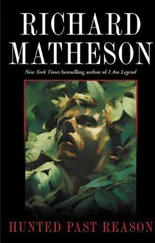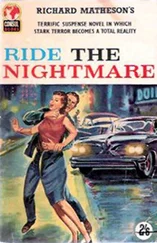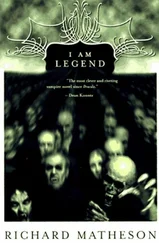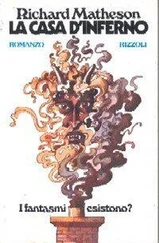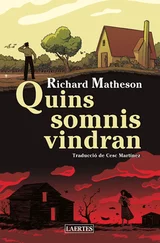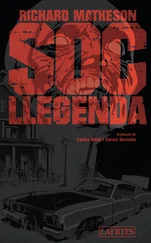I gazed out toward the deck and saw the fruitless mulberry tree. No, this wasn’t the same one, this was dying. The deck was littered with dry leaves and the pool looked stagnant, a slimelike growth on its motionless surface.
Turning back-there was a crack in the sliding door I noticed as I did-I stepped over to the baby grand. Its case, once a glossy brown, was now drab. I touched the keys. The sound they evoked was tinny. The piano was completely out of tune.
I averted my eyes from the dreary room and called Ann’s name.
There was no answer.
I called repeatedly, then, when the silence was unbroken, walked through the bar room to the family room, remembering the day-it seemed a century ago-I’d walked this same way in our earth house, the day of my funeral, before I’d realized what had happened.
The family room was as bad as the others-frayed and dusty furniture, faded paneling and drapes, tile floor grimy. In its fireplace, a small fire burned. I would never have believed, until that moment, that a fire could be anything but cheerful. This one was, so small and mean looking-a few, pale, licking tongues of flame around some scraps of wood-that it seemed to give no heat at all and certainly no comfort.
No music , I realized then.
Our home had always been filled with music, often a conflux of it from two to three sources at once. This house-this dour, unpleasant version of our house-was weighty with silence, cold with silence.
I didn’t look at the photographs on the walls. I knew I couldn’t bear to see the children’s faces. Instead, I moved into the kitchen.
Dirty dishes, pots and cutlery in the sink, the windows streaked with grime, the floors spotted. The oven door was open and I saw, inside, a baking pan half filled with hard, white grease, a few small scraps of dried-up meat.
I opened the refrigerator door and looked inside.
The sight repelled me. Wilted lettuce, dry, white cheese, stale bread, yellow-edged mayonnaise, an almost empty bottle of dark red wine. A fetid smell of rot came from the barely cool interior and I closed the door. Turning from it, trying not to let the look and feel of the house get past my mental guard, I moved across the family room and down the hallway toward the back of the house.
The children’s rooms were empty. I stood in each of them. They were not as cold and gloomy as the rest of the house but certainly not pleasant either. Only Ian’s room looked used, its bed unmade, papers lying on his desk as though he’d just been doing homework.
I wondered why.

Ann was sitting on the grass outside our bedroom.
I stood by the glass door, looking at her, tears in my eyes.
She wore a heavy, dark blue sweater over her blouse, a pair of wrinkled slacks, old shoes. Her skin, what I could see of it, looked pale and chapped. Her hair was lank as though she hadn’t washed it in a long time.
To my distressed surprise, I noticed Ginger lying by her side. I didn’t know it then but, after Ann was gone, Ginger had stopped eating and mourned herself to death in a month. Now she was here, so filled with love that she’d chosen this bleak environment rather than leave Ann alone.
Ann was slumped, immobile, holding something in her cupped hands. I’d never seen her in a posture which bespoke such abject misery and, moving to see what she held, I saw that it was a tiny, gray bird stiffened in death.
I remembered, suddenly, that this had happened before.
She’d found a bird in the street, struck down, unnoticed, by some motorist. She’d brought it home and sat down on the back lawn with it, cupping its small, pulsing body in the warmth of her palms. I remembered what she’d said. That she knew the bird was dying and wanted it to hear, in its final moments, the sounds it knew in life-wind rustling in the trees and songs of other birds.
A burst of sudden fury hit me unexpectedly. This was not a person who deserved to live in such squalor! What kind of stupid justice was that?
I had to struggle with the feeling. I could feel the anger, like a magnet, pulling me toward something I didn’t want to reach. If I hadn’t sensed, at the same time, that it was, also, pulling me away from Ann, I might have succumbed at the outset.
As it was, I remembered Albert’s warning once again and was able to repress the anger. This wasn’t judgment, I told myself. Or, if it was, it was self-inflicted. She was here because her actions had put her here. It wasn’t punishment but law. My resentment of it was a waste of energy. All I could do was try to help her understand. That was why I was there. And now it was time to start. I’d reached her body.
Now I had to reach her soul.
A poor beginning

THE SLIDING GLASS DOOR WAS PUSHED HALFWAY ASIDE AND, STEPPING to the opening, I spoke her name.
Neither she nor Ginger reacted. I thought it possible that she might not have heard but knew that Ginger would have.
Clearly, I had not “descended” far enough as yet.
I hesitated for a while. It gave me such a- grimy feeling, is the only way I can describe it, to lower my vibration and take on further thickness, further weight.
I knew I had to do it though and, bracing myself, allowed it to take place. I shuddered at the feeling. Then, gripping the handle of the sliding screen door, I eased it open.
Instantly, Ginger jerked her head around, ears standing high, and Ann began to turn. Seeing me, Ginger lurched to her feet with a growl and scrabbled around to face me. “Ginger, don’t-” I started.
“Ginger.”
The sound of Ann’s voice almost made me cry. I stared at her as Ginger faltered back, glancing around. Ann was pushing to her feet and, for a glorious instant, I thought she recognized me. With a beginning sound of joy, I moved toward her.
“Who are you?” she demanded.
I froze in mid-step. Her tone had been so cold, I felt an icy clamp snap shut on my heart. I stared at her, dismayed by her hard, suspicious voice.
Ginger still growled, hair raised on her back; obviously, she didn’t know me either. “She’ll attack if you come any closer,” Ann warned. I sensed that she was more frightened than threatening but, again, the hardness of her tone cowed me.
I had no idea whatever how to proceed. I recognized her, of course. She returned my look and found me totally alien. Was it possible, I wondered, that there was still a vibratory distance separating us?
I was afraid to find out. Did she see me clearly? I wondered. Or was I blurred to her as Albert had been to me the first time I’d seen him after I died?
I cannot say how long we would have stood there mutely if I hadn’t spoken. We were all like statues, she and Ginger staring at me, Ginger silent now but still standing taut, ready to defend Ann if she had to. I felt a rush of affection for her. To love Ann so that she accepted this in place of Summerland. What more can be said in praise of her devotion?
My mind seemed like the works of some old clock, its wheels revolving inchingly. There had to be something I could say, I thought. Some way to begin. But what?
I have no idea how long it took for the initial concept to form in my mind. As I’ve indicated, Robert, time in afterlife is not the same-and, even though this place was closer to Earth than to Summerland, its time scale was, in no way, similar to the clock and calendar continuum Ann and I had known in life. What I mean is that the period of time we spent in gazing at each other may have taken many minutes or a second or two; I believe the former, however.
Читать дальше




